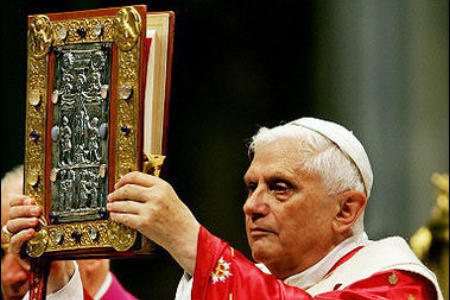What kind of man do you want to be?
“One day you are going to have to make a choice. You will have to decide what kind of man you want to grow up to be. Whoever that man is, good character or bad, is going to change the world”
– Can you guess?
"We are travellers…not yet in our native land" – St. Augustine
“One day you are going to have to make a choice. You will have to decide what kind of man you want to grow up to be. Whoever that man is, good character or bad, is going to change the world”
– Can you guess?
Have you ever been to a Bible study with a guy who always seems able to find the right page of the Bible in seconds? It’s impressive, right? You’re still flipping backwards and forwards through the Bible while he’s looking smug, polishing his glasses and helping the more attractive females in the group find the right page…
I would suggest that he’s able to find things so quickly, in large part, due to his understanding of the structure of the Bible. We looked at the structure of the New Testament yesterday, so let’s apply what we covered yesterday.
Let’s say that we’re looking for the 2 Timothy 3:15…
We know that Paul wrote this letter. Therefore 2 Timothy 3:15 must appear after the Gospels and Acts.
We also know that if we find ourselves flicking through the epistles from other Saints (James, Peter etc.) then we’ve gone too far.
When we’ve found the Pauline epistles, we have to narrow down our search…
We know that 2nd Timothy is a letter to a person (Timothy), so it must appear in the second half of Paul’s letters, after his letters to communities.
After a little bit of searching we finally come across 2nd Timothy. We turn to Chapter 3 and look to the 15th verse:
…from infancy you have known the Holy Scriptures, which are able to make you wise for salvation through faith in Christ Jesus. – 2 Timothy 3:15
So it’s clear that understanding the structure of the Bible makes it considerably easier to navigate. Now you can be a Bible ninja too
From Nathan Huang
One of the wonderful treasures of the Catholic faith in the Roman Rite is the Lectionary.

Every Sunday the congregation hears large chunks of Scripture selected from different parts of the Bible, from both the Old and New Testaments:
1. Old Testament passage
2. Psalm
3. New Testament Epistle
4. Gospel Reading
The Readings selected for each week are usually united by a common theme. This is especially true for the Old Testament passage and the Gospel Reading. The brilliance of this arrangement is that it shows the unity between the Old and New Testaments. As the great Early Church Father, St. Augustine, wrote:
“The New Testament is hidden in the Old and the Old is revealed in the New”
– St. Augustine of Hippo, “Quaestiones in Heptateuchum” 2.73
However, as good as this arrangement is, I have found that it can lead to certain difficulties. In particular, Catholics can sometimes have difficulties understanding how the Readings they hear on Sunday relate to the respective books of Scripture from which they are drawn, and also how those books fit into the the New Testament as a whole.
What can be done to address this problem? Well, when leading small Bible study groups, I always begin by asking those present to walk me through their New Testament’s “Table of Contents” page. I do this because, as with most things, once one comprehends the overall structure of something, the contents becomes less intimidating and more memorable because one already understands the framework and context in which that content has been placed.
![]() The theme throughout the Readings this week is that of shepherding.
The theme throughout the Readings this week is that of shepherding.
In our First Reading the Prophet Jeremiah berates the leaders of Israel who have failed in their duty to carefully shepherd the people. In response to their failure, God promises that He Himself will gather His people together and that there will come from the line of David an exemplary shepherd.
This good shepherd is, of course, Jesus Christ and this is demonstrated in our Gospel this week when we hear about our Lord’s compassion on the people “for they were like sheep without a shepherd”.
Likewise, in our Second Reading, St. Paul praises the wisdom of God who, through Christ, has “broke[n] down the dividing wall of enmity”, thus uniting two flocks, the flock of the the Jews and the flock of the Gentiles. These two flocks are gathered into the Church under one Shepherd, Christ.
And so in our Psalm we praise the Lord, our Shepherd, who is by our side even though the “dark valley” and who leads us “beside restful waters” and to “verdant pastures”.
As the Lord “spread[s] the table before [us]” this week in the Eucharistic feast, let us celebrate our Good Shepherd, who loves so much that He laid down His life for us, His sheep.

“No one ever said following Christ would be easy. He didn’t say, “Come pick up your pillow and follow me.”
– Sister Karen of the Sisters of St. Francis of the Martyr St. George
All the way my Savior leads me
Who have I to ask beside?
How could I doubt His tender mercy
Who through life has been my guide?
– Chris Tomlin, All the Way